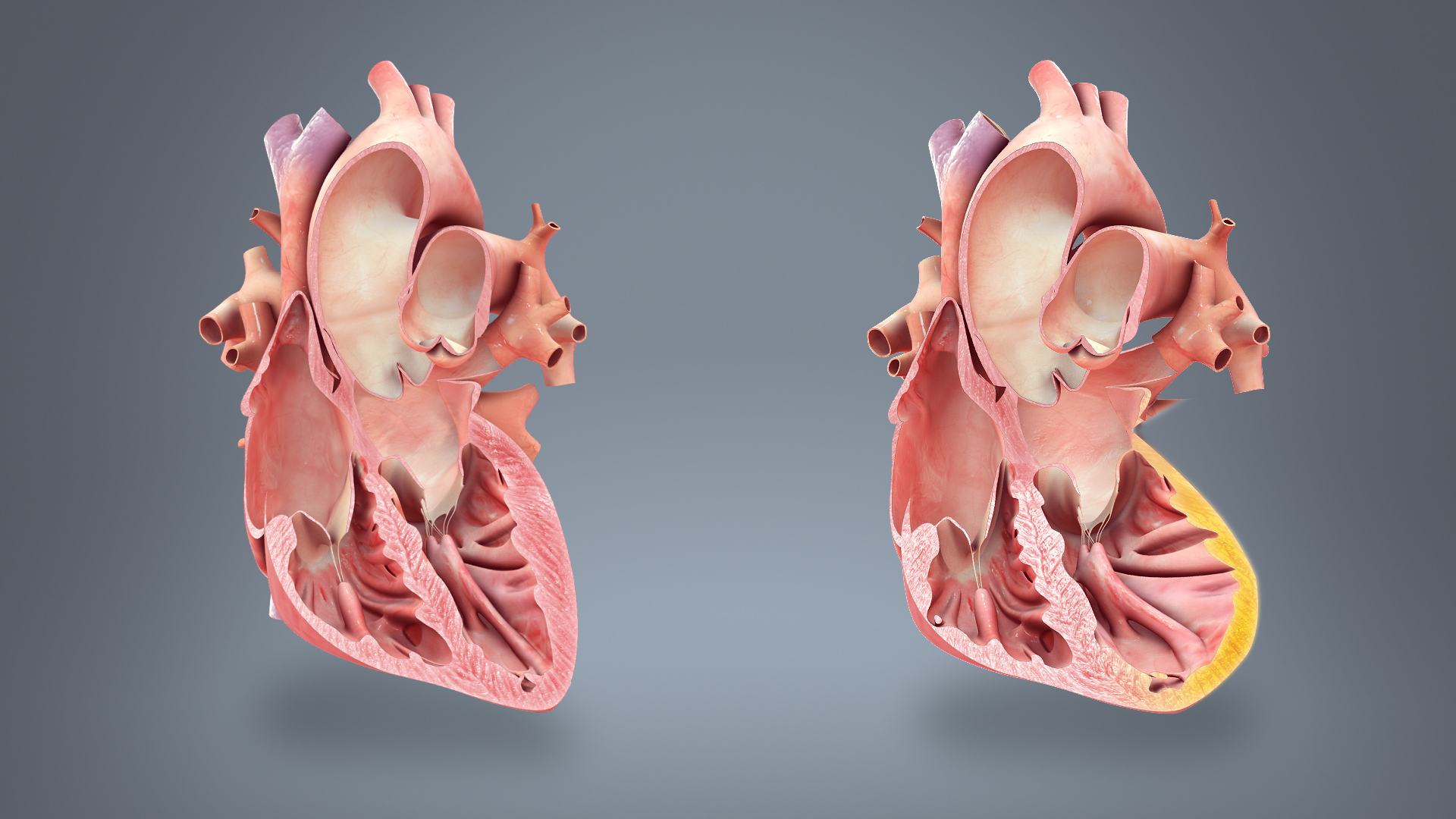Heart failure is a serious condition in which the heart is unable to pump sufficient blood to the entire body. Heart failure does not mean that the heart has completely stopped working. It means that because the heart is not pumping an adequate supply of blood, the cells are not getting enough nutrient and oxygen-rich blood and with insufficient nourishment, the body is not able to function properly. Around 6 million Americans suffer from heart failure every year. It affects more men than women.

Symptoms
The symptoms of heart failure may be mild or severe, they may be constant or they may come and go. The most common signs and symptoms are:
- Shortness of breath
- Excessive fatigue
- Swelling in legs, ankles, and feet
- Irregular or rapid heartbeat
- Persistent cough
- Loss of appetite
- Sudden weight gain
- Dizziness
- Swelling in the abdomen
- Difficulty in concentration
Causes
Heart failure is caused due to damage to the heart muscle. This damage of the heart muscle may be due to the following conditions:
- Coronary artery disease
- Heart attack
- Cardiomyopathy
- Conditions that overwork the heart such as valve disease, high blood pressure, kidney disease, thyroid disease, diabetes, and congenital heart defects
There are many factors that lead to the risk of developing this heart condition. These factors are:
- Smoking
- Obesity
- Diabetes
- Hyperthyroidism
- Hypothyroidism
- Anemia
- Myocarditis
- Heart arrhythmias
- Excessive consumption of alcohol
- Sleep apnea
- Use of tobacco
Types of heart failure
The different types of heart failure are:
- Left-sided - the fluid backs up into the lungs and causes shortness of breath. This type is the most frequent one.
- Right-sided - the fluid backs up into the abdomen, feet, and legs, causing swelling.
- Diastolic - in this type of heart failure the heart contracts properly, but the ventricles are very stiff and do not relax properly, and so less blood can enter the heart.
- Systolic - the heart muscle does not contract with full force so there is less nutrient-rich blood pumped throughout the body.
Treatment
The treatment of heart failure focusses on reducing the progression of the disease, reducing the symptoms, and improving the quality of life. It is a disease that needs lifelong monitoring and management. In some cases, this can be treated by surgically treating the underlying cause, but in most cases, balancing the right medication along with the use of devices to help the heart to beat and contract properly is required. Medicines such as ACE inhibitors, Beta-blockers, Anti-coagulants, Digoxin, and Diuretics are prescribed. Coronary bypass surgery, heart valve repair or replacement, and other surgeries such as angioplasty, or surgery to implant devices such as pacemakers may be prescribed. Lifestyle is also closely monitored.
It can easily be prevented by leading a healthy lifestyle in which one gets plenty of exercise, avoids smoking or drinking too much alcohol, reducing stress, eating a healthy diet, and controlling blood pressure and diabetes.
Disclaimer: The information in no way constitutes, or should be construed as medical advice. Nor is the above article an endorsement of any research findings discussed in the article an endorsement for any of the source publications.








